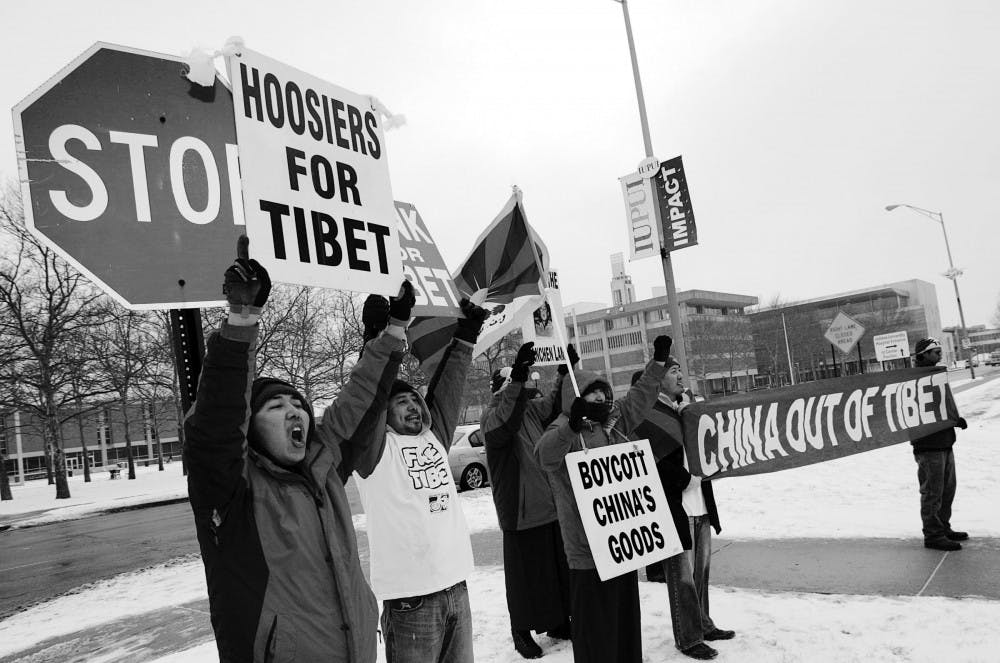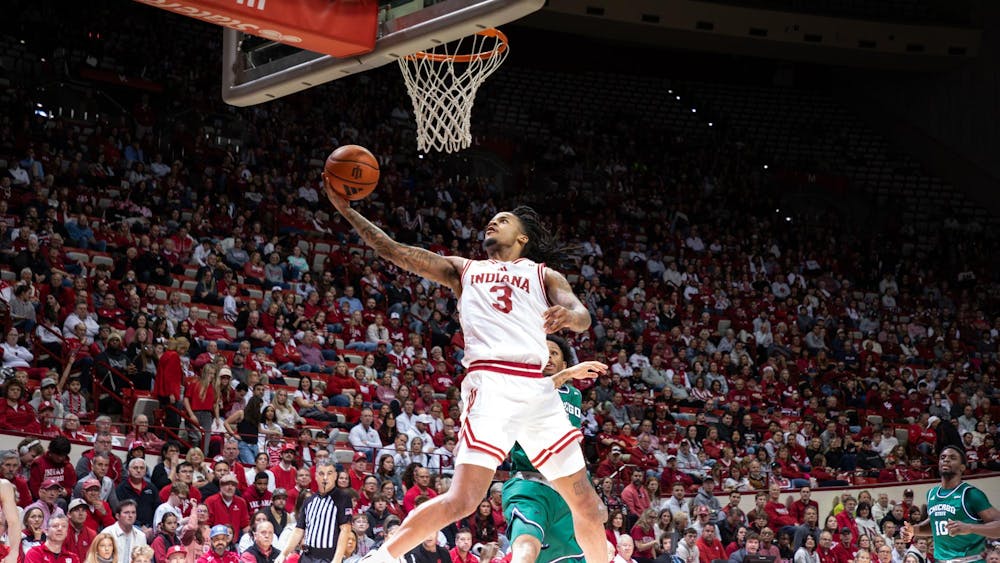INDIANAPOLIS – “Do you know George Bush? Are you friends?” \nWhen Zhou Wenzhong, the Chinese ambassador to the United States, spoke Friday at IU-Purdue University at Indianapolis, his pivotal role in peaceful relations between China’s 1.3 billion people and the U.S. did not take center stage. The questions from the 11- and 12-year-old Mandarin students of Westlane Middle School in Indianapolis were the highlight of the speech.\nAs a guest speaker for the IU Center for International Business Education and Research at IUPUI, Zhou spoke on the subject of China’s peaceful and sustainable development and U.S. relations. \nIn response to students’ questions, Zhou said President Bush received him and his family for a visit and that it would be his honor to be the President’s friend. \nZhou’s scripted speech highlighted China’s goal of fixing what Zhou called “unbalanced” growth, forging “good neighborly” business partnerships with developing industries in Russia and Africa and “upholding peace and development” in Africa. \nWith a thumb-sized Chinese flag pinned to his Maoist gray lapel, Zhou said that culturally, China and the U.S. are improving dialogue. However, “a tendency to politicize trade issues” concerning China’s trade partners and exchange rate are complicating relations. \nBefore reading his speech, Zhou said he’s aware of Americans’ skepticism toward China’s tight-lipped government. \n“I sense gradually people’s concern on China’s transparency, so I’ll try to be transparent today,” Zhou said. \nHowever, buzz words like “peaceful development” and “active bilateralism” made it difficult to clearly discern China’s positions on climate change, altering the Chinese yuan exchange rate and just how China’s growth will be stabilized.\nZhou clearly stated two things: China will never allow anyone to separate Taiwan from the mainland and China’s aide to unnamed countries in Africa has been extended without political conditions. \nChina, which is heavily invested in Sudanese oil, has received criticism for so-called lack of action against the Darfur crisis. \n“Specific conditions of these countries should be left up to the people in that country,” Zhou said. “China extends economic support with no stipulations.” \nIn response to questions read by Dan Smith, dean of the Kelley School of Business, Zhou said it is premature to judge the lifespan of China’s labor intensive industries. Though coastal cities might expand the job market, the interior will likely remain focused on labor intensive factory jobs. \nZhou said every 1 percent of economic growth generates 10 million jobs. Because that’s the case, he said, China needs at least 10 percent growth every year. However, foreign companies that invest in industry in China have a responsibility to respect the social development in China, he said. \nThough much of the business specifics were over 12-year-old Eli Profeta’s head, his question to the ambassador outlined the important challenges that face China-U.S. relations. \nProfeta asked Zhou if he liked being an ambassador. \n“I would hope that people will trust us and treat China as a friend,” Zhou said. “But it can be frustrating to be misunderstood. But now, I’m just being diplomatic.”
Chinese ambassador’s speech stresses diplomatic challenges
Topics included aide to Africa, Taiwan separation

Get stories like this in your inbox
Subscribe





